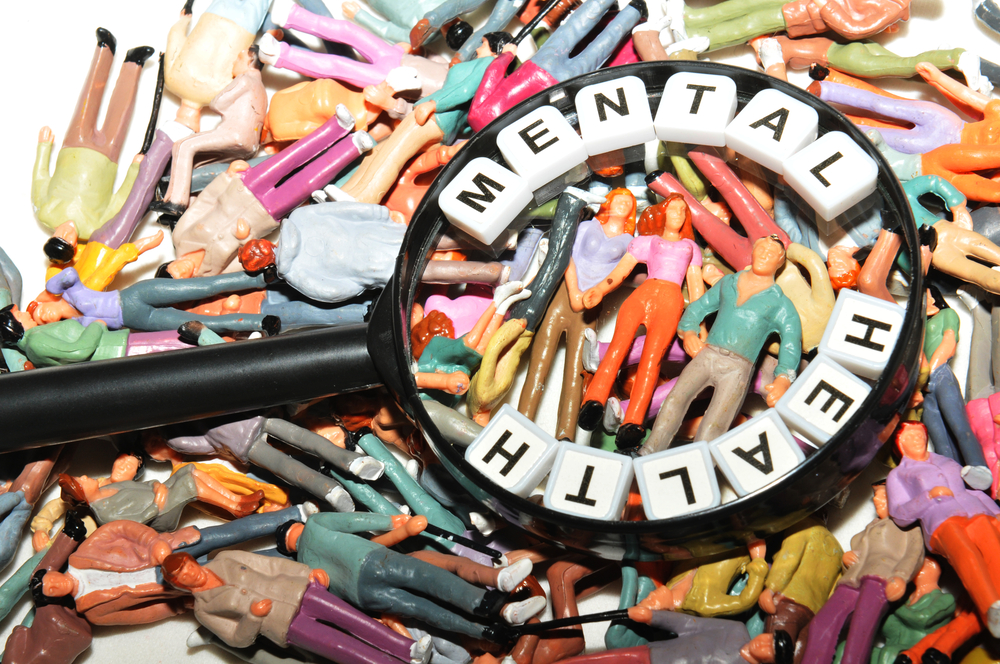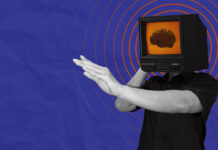Trauma, disorder, mental illness. How have these harm-related concepts expanded over time to become descriptors of everyday phenomena and life experiences when they were once formulated to describe extraordinary experiences? And what does this gradual expansion have to do with psychiatrization, a term introduced by Timo Beeker as a conceptual framework for understanding the processes by which more and more individuals are diagnosed and treated as mentally ill, and psychiatric practices shape more and more areas of life?
A new article by Nick Haslam, Jesse Tse, and Simon De Deyne uses the theory of “concept creep” to shed light on both psychiatrization and the increasing inclusiveness of concepts like trauma.
“Concept creep theory proposes a broad historical shift in the inclusiveness of harm-related concepts that is connected to incompletely understood cultural, societal, and political changes and likely to have an array of social and psychological implications.”
 While the incidence and prevalence of diagnosed mental disorders have remained relatively stable, the global rise in psychiatric care has caused a growing burden for both healthcare systems and societies. Recent work by Sebastian von Peter, for example, explores how Open Dialogue (OD) can be used as a potential strategy to counter the wave of global psychiatrization.
While the incidence and prevalence of diagnosed mental disorders have remained relatively stable, the global rise in psychiatric care has caused a growing burden for both healthcare systems and societies. Recent work by Sebastian von Peter, for example, explores how Open Dialogue (OD) can be used as a potential strategy to counter the wave of global psychiatrization.
The medicalization of everything from depression to loneliness has been well-documented. Its effects are potentially harmful to individuals, societies, and public healthcare (not to mention that it has also been criticized as a tool of coloniality). The potential harms of psychiatrization are many and include overdiagnosis and overtreatment, undermining mental healthcare provision for the most severely ill, and “boosting medical interventions which incite individual coping with social problems, instead of encouraging long-term political solutions.”
Concept creep theory, developed by Haslam in 2016, helps bring some of the nuances of psychiatrization into focus. The theory of concept creep distinguishes two forms of “semantic expansion”:
“Concepts may extend downward (vertical creep) to encompass less severe phenomena, and outward (horizontal creep) to include different kinds of phenomena. In the psychiatric domain, vertical creep corresponds to the relaxation of diagnostic criteria or the creation of new diagnostic entities that represent milder variants of already recognized conditions. Horizontal creep, in contrast, corresponds to the creation of qualitatively new entities, generally by colonizing new pathological territory (e.g., the addition of disorders of sleep, eating, or childhood during DSM’s evolution).
These two kinds of expansion both pathologize new forms of behavior and experience, but they have not been distinguished consistently in previous research on psychiatrization or diagnostic inflation.”
As Haslam’s research on concept creep discovered, the concept of “trauma” underwent an inflation in meaning in both professional/academic and popular cultural content. Significantly, he found that the expansion of the term in the cultural realm did not straightforwardly follow its expansion in the professional or academic realm; in other words, concept creep was not obviously a top-down process – and if it was, its workings were complex and subtle.
Importantly, as the authors point out, the discourse that drives psychiatrization – and the concept creep of ‘mental illness’ that underpins it – “may not emanate from psychiatry at all but from adjacent studies of well-being within psychology and cognate fields.”
“We have observed a growing tendency in these disciplines to conflate ‘well-being’ with ‘mental health’ that is likely to produce a tendency to pathologize what Freud called ‘common unhappiness.’”
Whereas once ‘mental health’ was understood primarily as the absence of illness and ‘well-being’ as the presence of emotional health and satisfaction, when the two concepts are conflated, “‘mental health’ is increasingly represented as a positive state of health beyond the absence of symptoms. However, if ‘mental health’ becomes a salutary state that is close to synonymous with ‘well-being,’ then states of low well-being risk being seen as mental illness.”
This is the danger in the complex interplay between cultural discourse and the multiple disciplines and industries that trade in concepts of well-being and harm. The concept of psychiatrization has the potential to integrate several lines of theory and research on the causes and effects of the rising prominence of psychiatric concepts and practices, and the theory of concept creep can help us frame new approaches to studying it.
****
Haslam, N., Tse, J. S. Y., and De Deyne, S. (2021). Concept Creep and Psychiatrization. Frontiers in Sociology. (Link)















Well, given the fact that my former psychologist thought a dream was “psychosis,” implying all who dream are “psychotic.” Which would mean all of humanity is “psychotic,” since we all dream.
I’d say we’ve been dealing with “concept creep” and over “psychiatrization” for decades, or centuries.
But anything is acceptable – pathological lying, neurotoxic poisoning, attempted thievery – according to the psychology, whose goal is covering up child abuse and rape, for their pastor “partners.”
No doubt, there is “a tendency to pathologize what Freud called ‘common unhappiness,’” or even legitimate distress or concern. And Freud was a child abuse cover upper, too.
https://www.indybay.org/newsitems/2019/01/23/18820633.php?fbclid=IwAR2-cgZPcEvbz7yFqMuUwneIuaqGleGiOzackY4N2sPeVXolwmEga5iKxdo
So one must ask, how many centuries will it take for psychology and psychiatry to get out of the illegal child abuse covering up business, especially given the fact that the majority of those psychiatrically stigmatized are child abuse survivors?
https://www.madinamerica.com/2016/04/heal-for-life/
Report comment
REM – for “Rapid Eye Movement”, is the sleep-stage when dreaming typically occurs, and recordings of brainwave patterns during REM cycles mimic & match those of psychotic persons. We’re psycho while we dream. Every night. ALL OF US. Psychosis is a NORMAL state of mind, when we sleep. And, normal, but not so good if we’re awake! Psychosis is only fun once you master control of that mind state, and can be terrifying to the untrained….
Psychiatry can never admit this truth, or risk losing maybe 25 – 50% or more, of their current clients-victims-guinea pigs….
Report comment
Remember to take into account the flawed assumptions of neurology and psychology.
Thus to say “we’re psycho when we dream” is probably a misstatement. All we know from what you have reported is that the brainwave patterns match. But psychosis is a waking mental state associated with certain behaviors, not a brain state.
But I know at least one person who suffers from occasional “psychotic” episodes who is basically fine and only requires some quiet time when these things happen.
Oddly, it is true that none of us have as much control over our minds as we could (can you remember what you were doing 10,000 years ago?) but most of us get by in this world anyway, and for those of us who are having a hard time, it’s probably because we bumped into one too many psychiatrists (or their psychopathic brethren)!
So, while I would resent being called “psychotic” just because I dream, I don’t resent the idea that I could improve my mental and emotional abilities. For better or worse, psychiatry has no idea, and probably no interest, in helping us out in this regard.
Report comment
This kind of thinking is highly theological. Spiritual. And people must remember that monism or monotheistic materialism is against mythical reality – for e.g. dreams. Atheitsts also use theology to condemn psyche – politheistic nature of mythical imagination. Psychiatrists supossed to defend psyche. They are against, because they represent monotheoistic thinking about politehistic imagination – which is nonsense. The literalism of philosophy is a death sentence fot the psyche perspective. Words lost their meanings, so they are people who lost their meaning. And so they have pseudo medical prisons of condemnation. Psychological people are persecuted heathens by persecutors with medical pretensions. Psychiatrists are atheistic persecutors who are using monotheistic thinking to condemn the excluded nature of the polytheistic imagination. Rockefellers medicine messengers. Pseudo medical evil from hell. Literalism of clinical jargon is vulgar and thinking is barbaric.
Psychiatrists (psyche) supossed to defend the PSYCHOLOGICAL worth and the need of psychosis, depression and death. Becauste those are the essence and the real language of the psyche. They are spiritual and materialistic persecutors of those. Psychiatry is not medicine, it is an ideology that excludes the psyche from the world of infantile monism.
Report comment
So, globally, we’re seeing about the same numbers on so-called “mental illness”, but a huge jump in “psychiatric treatments”? meaning a huge jump in payments to psych providers, and a huge jump in psych drug sales? Yup, sounds about right.
Report comment
If “psychiatric treatment” helps people overcome “mental illness,” why aren’t there fewer people suffering from “mental illness?” Seems like the more “treatment” is provided, the MORE “mentally ill” people turn up!
Report comment
Psychiatrization is psychiatrization. Corrupt people use the materialistic gap of separation between people without rights to psychological identity. Psychiatry and its labes are in the place of that stolen identity. Pychiatry uses the psychological unwittingness of today’s masses who are lost in consumerism like crazy ships on the quagmire. We are not humans anymore. Since the Enlightenment era people are only beasts of burden belonging to the needs of The riches. Rockefellers medicine needs your illness, psychiatry needs to destroy your real ID ( Rotschilds etc). We are here to meet the needs of the worst group of unimaginal bastards on the top (Committee of 300). This is slavery and state is an terroristic organization. (Das Ende des Papiergeld-Zeitalters: Ein Brevier der Freiheit, Roland Baader)
This is slavery and psychiatry foreshadows the future totalitarism. If you promote psychiatry it means – you want to be destroyed.
Report comment
“Incompletely understood” seems to be the operative concept here.
As far as I can tell, Big Pharma has a stranglehold on the funding of research in this field. That leads to a complete disregard for any work that will not lead to yet another new pill. I don’t think these people understand the depth of deception that has been leveled at the general public by those who want us to believe that drugs are the only answer.
Incompletely understood? It has been a full-on media assault going on for decades now. There are NO mainstream outlets who are pushing back against this marketing campaign. We have witnessed the commercialization – the industrialization – of health care and mental health care. And the public and workable alternative approaches are getting the short end of the stick.
What is to not understand? It is a blatant and ongoing power grab. Maybe psychologists should be required to study political science?
Report comment
Psychiatry is creepier than Halloween and to me Halloween is pretty creepy. I would describe psychiatry as that haunted house in your neighborhood that just want “go away”, even after it’s been bulldozed for a new condo building or whatever they want to build. Psychiatry makes you sick both inside and outside. In fact, psychiatry is the real sickness. Sadly, so many are just victimized by it. Psychiatry terrorizes and torments its “patients” into submission to their evil ways and practices. Psychiatry might be the most “legitimized” form of what some might call “satanism” in the whole world. I only say legitimized because unfortunately this form of torture is still legal and has yet to be considered any sort of “war crime” although, in my opinion, it is. Creepy really doesn’t even describe psychiatry. Thank you.
Report comment